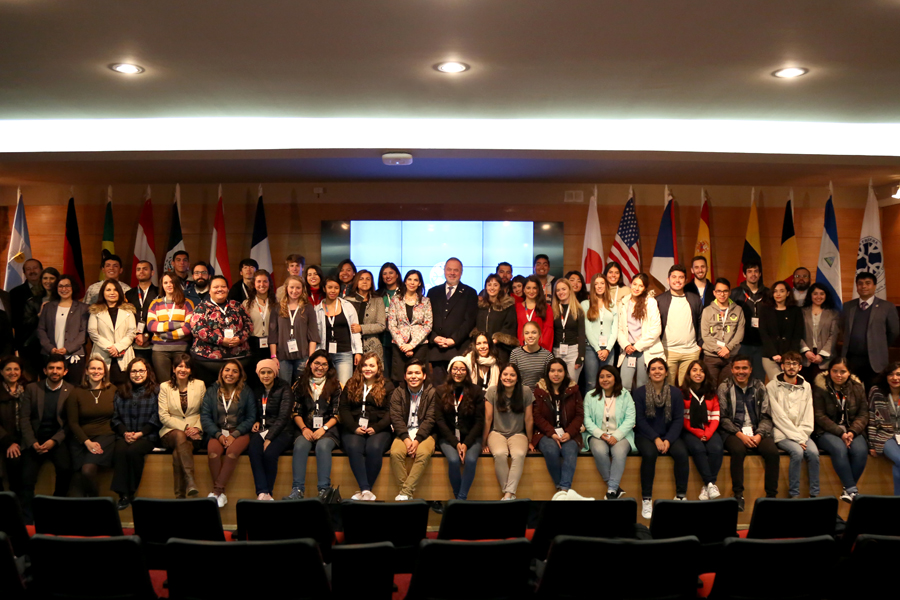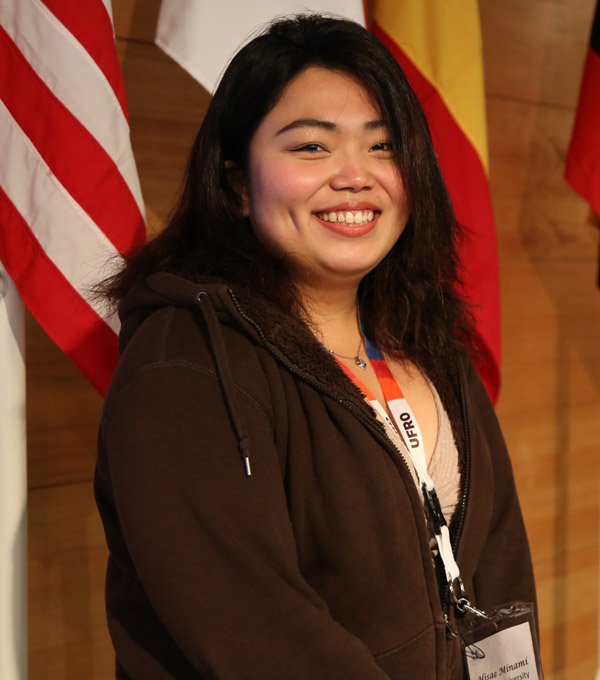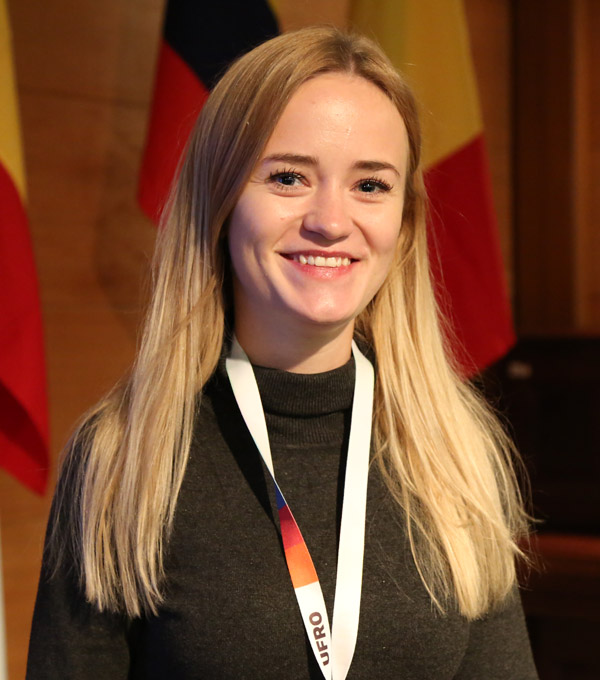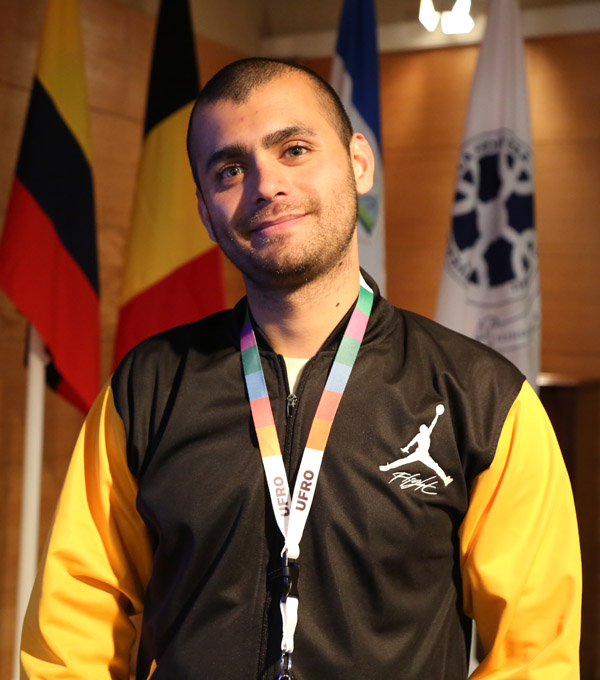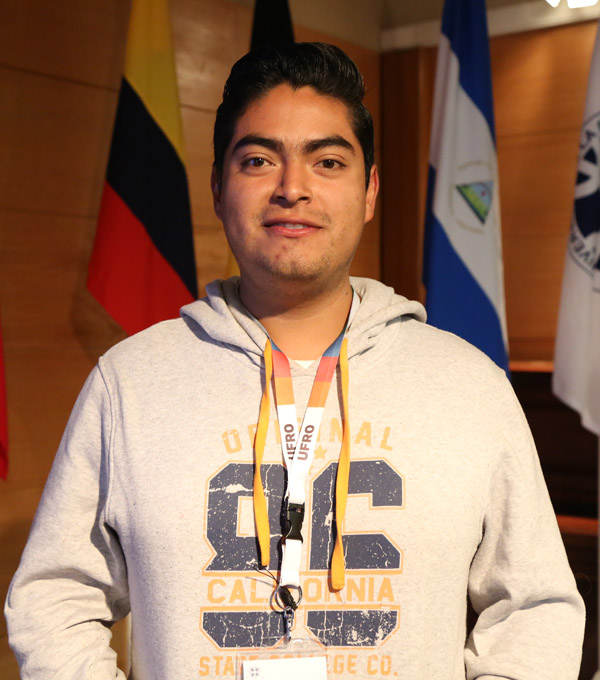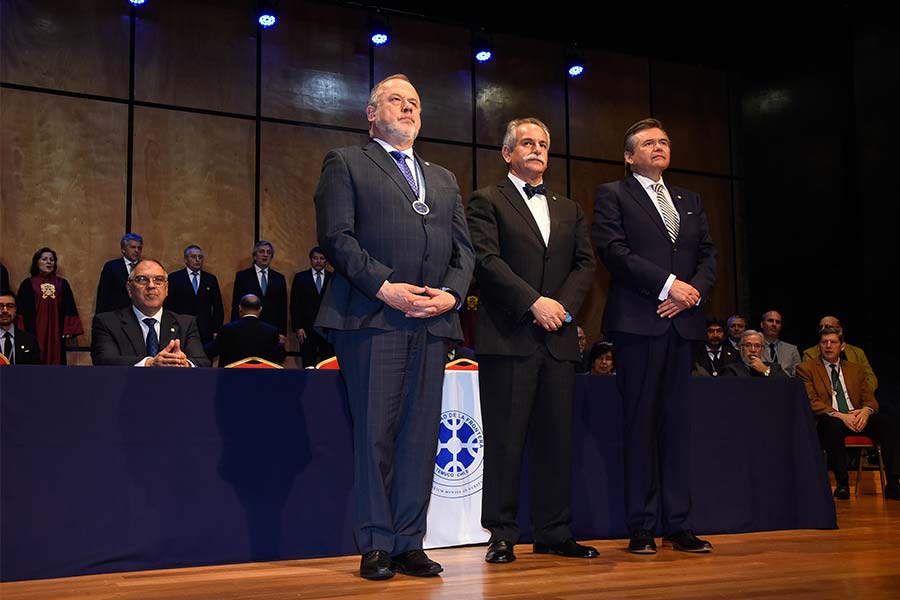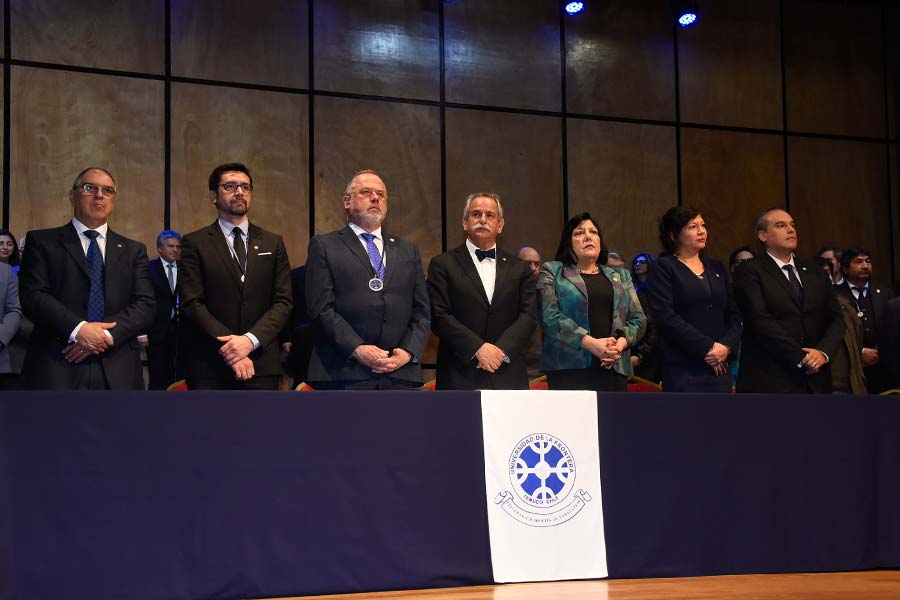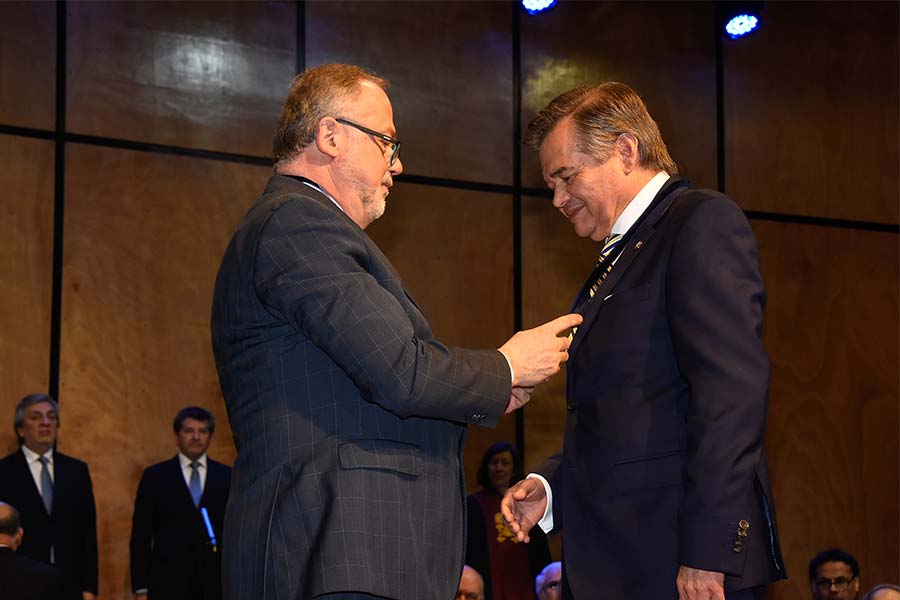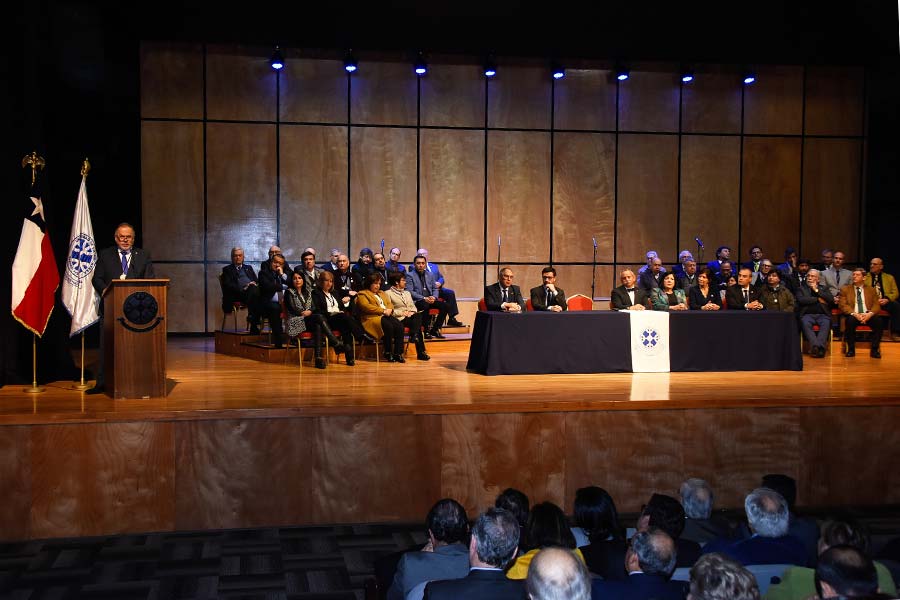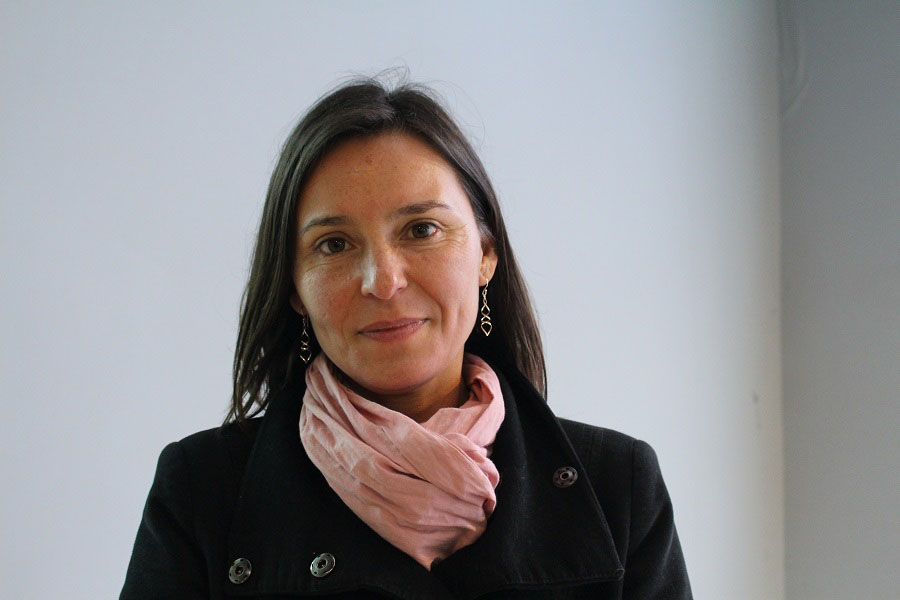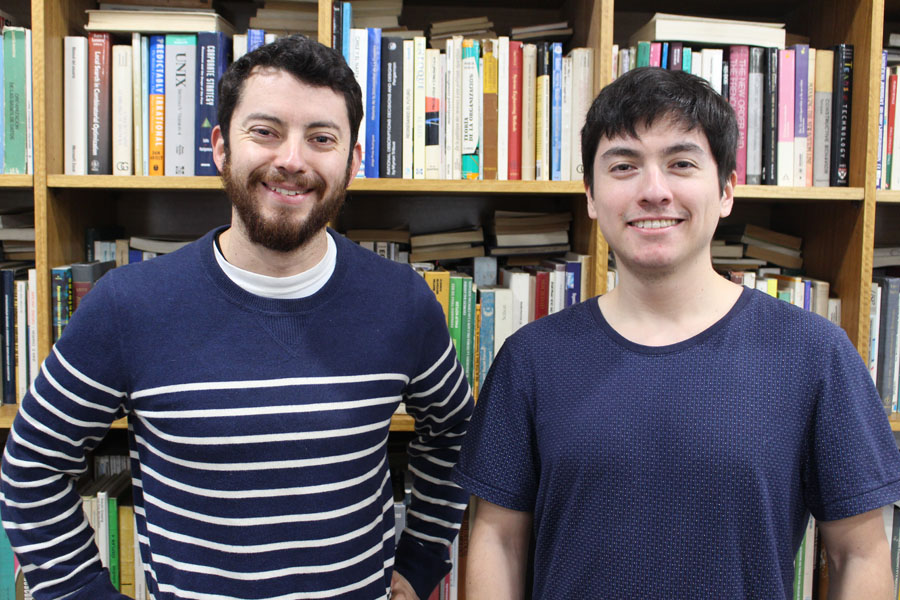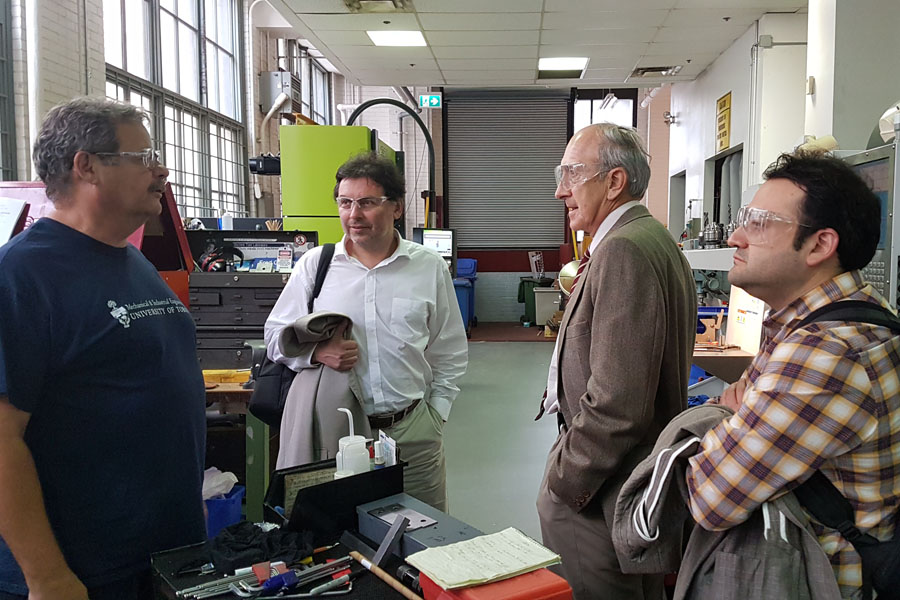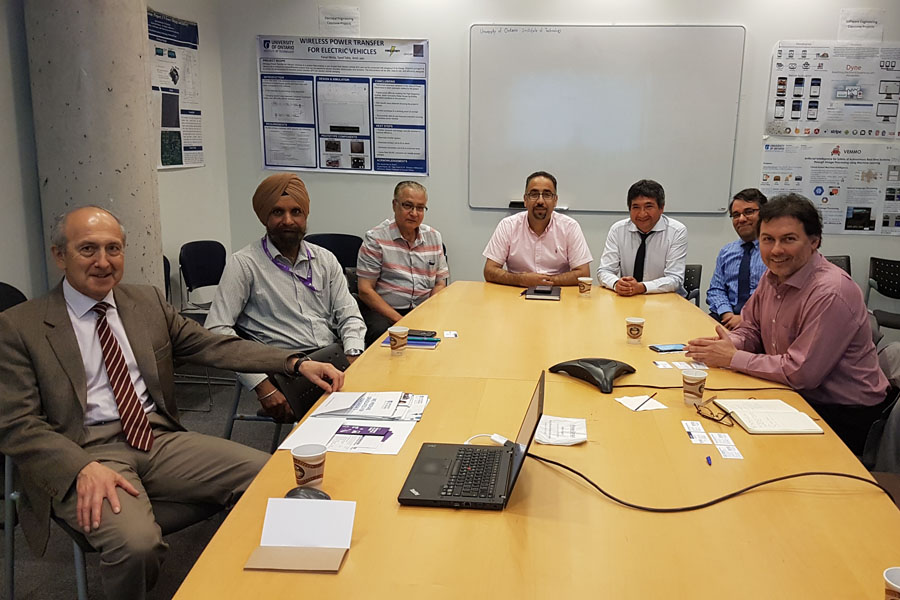|
In a solemn ceremony of installation of the new university´s governing body, the Rector, Dr. Eduardo Hebel Weiss, delivered his first message to the university community. |
In presence of local, regional and national authorities, academics, teachers and students, the Universidad de La Frontera held a ceremony of assumption of office for the rector, Dr. Eduardo Hebel Weiss, and the university´s new governing body after 16 years of leadership by rector Sergio Bravo Escobar. The university community, as well as local and regional authorities came together at the Aula Magna of the UFRO in order to express their wishes for the success in this new chapter for this state and public university in the Auraukania Region.
 Written by: UFRO Rector´s Cabinet Written by: UFRO Rector´s Cabinet |
|
Dr. Francisca Acevedo will hold the office for the next five years and soon begins with her consular duties. |
Her connections, the French nationality and cultural knowledge, as well as her outstanding academic profile were key for Dr. Francisca Acevedo of the Department of Basic Sciences at the Universidad de La Frontera for being appointed honorary consul of France in the Araukanía Region.
 Written by:Sergio Valenzuela Written by:Sergio ValenzuelaCommunications Office |
|
Canada will be the next destination for two Master´s students in Total Quality Management Systems at the Universidad de La Frontera (UFRO), thanks to being awarded ELAP scholarships. |
Lorem ipsum dolor sit amet, consectetur adipiscing elit. Vestibulum pharetra sem leo, non tincidunt libero interdum elementum. In rutrum quis ante in rhoncus. Phasellus dapibus elit ligula, ut fringilla eros sagittis et. Integer pellentesque quam nec leo feugiat tempor. Phasellus luctus rutrum felis eu consequat. Pellentesque magna ipsum, vulputate vel gravida eu, porta id urna. Integer vitae enim a urna euismod commodo quis quis dui. Phasellus sagittis felis eu vestibulum consequat. Sed eu urna eu erat efficitur porttitor. Suspendisse posuere pharetra lacinia. Donec cursus magna in arcu mollis pharetra. Maecenas vel massa mauris. Nulla scelerisque placerat tempor. Pellentesque habitant morbi tristique senectus et netus et malesuada fames ac turpis egestas. Mauris iaculis sem vitae dolor accumsan cursus. Phasellus tristique iaculis neque ac finibus. Sed et rhoncus risus, ut interdum lorem. Pellentesque tincidunt lorem sed massa rutrum finibus. Proin rutrum erat in mi tincidunt, quis pretium enim imperdiet. Ut sit amet scelerisque leo, vitae lobortis risus. Phasellus efficitur vestibulum tortor id malesuada. Nunc eget velit id nisl tincidunt consectetur. Duis ultrices maximus varius. Phasellus tristique ut est at mattis. Sed risus odio, rhoncus vitae tortor pharetra, laoreet pretium orci. Ut ut diam metus. Nullam nec lectus at orci cursus posuere. Nunc vitae enim sit amet justo posuere fringilla. Donec pellentesque pulvinar aliquam. Pellentesque tincidunt blandit justo, quis semper erat semper ac. Fusce in purus rutrum, commodo nulla rhoncus, pulvinar tortor. Aliquam erat volutpat. Donec augue lacus, dictum vel vulputate vitae, facilisis a ante. Sed velit risus, tempus ut quam at, luctus aliquam nibh.
 Written by: Daphne Bormann Written by: Daphne BormannFaculty of Engineering and Science |
|
The training of engineers - this was the central topic during the academic visit of authorities of the Faculty of Engineering and Science of the Universidad de La Frontera in Canada. |
The delegation was led by Dr. Rodrigo Navia Diez, the dean of the UFRO Faculty of Engineering and Science. They visited different universities and were able to put into action their plan to gain a deep insight into the Canadian experience regarding the implementation of programs that address design and innovation in their syllabi for their engineering programs, at an early stage.  Written by Daphne Bormann Written by Daphne BormannFaculty of Engineering and Science |





